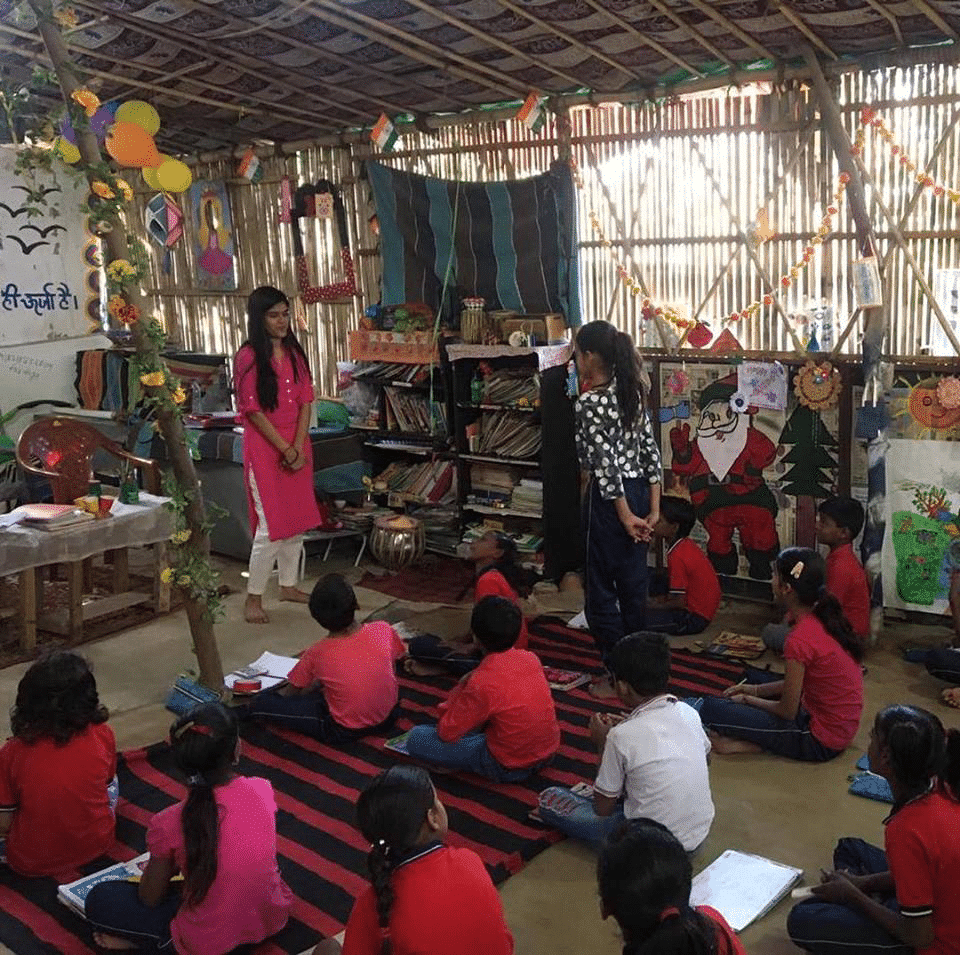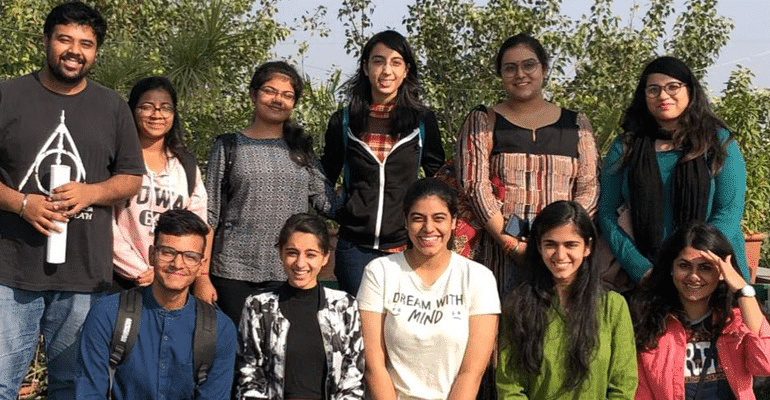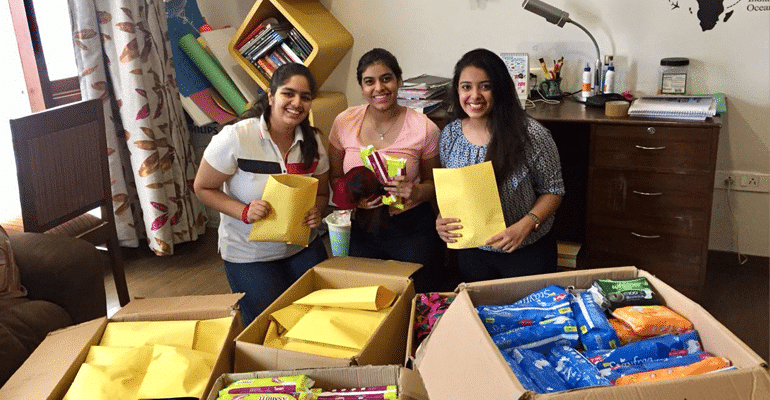Have you ever thought of teaching your child how to love and respect their body? Is it possible for a kid to think without language? How does a child experience human connection before learning a language? Do you feel that what you say and how you say shapes a child’s thinking process?
Well, answering these questions won’t fetch you marks, but, helping your child understand their psychological and physical changes will certainly help them to have healthy intimate relationships when they grow up. The power of knowledge which they will then use to protect themselves!
In a candid conversation with Life Beyond Numbers, 18-year-old Niyati Sharma, founder of Pratisandhi, shares what it means to introduce sex-education in Indian schools, why is it necessary and the importance of making children aware of the sensation.

Pratisandhi, which means ‘the period of transition between two ages’ was born on March 29, 2018, and was conceptualized as a response to the dilapidated conditions of sexual health awareness in India, especially among the sexually active youth community.
Niyati, who has partly spent her childhood in Kuwait and is now staying in Delhi says, “The problem is children do not have a language for what they are experiencing. I was lucky in this case because my mother is a gynecologist and therefore, we had a very open discussion about taboo topics such as sex and sexual health. Be it schools or NGOs, anyone working for children should take an initiative, so Pratisandhi was hoping to start this conversation.”
We live in a society where a male child is told to man up from a very young age, not to be sensitive and a female child is told that they are too sensitive. Therefore, when a girl grows up, she tries to bottle up her feelings and sensations, confused about what is happening to her body and in fear that she will be judged by people around her.
This is where Pratisandhi comes in- to promote conversations, dialogue, and awareness of sexual health and education in India, with a special emphasis on the lower strata of society.
Where the problem lies
If and when sex-education is introduced in a school, the children are provided with a very basic knowledge, where the teacher also at times shy away from discussing the subject in detail. While the kids are flooded with thoughts and fail to approach the teacher, the parents chip in to explain them. They guide the children through books, maybe, but to satiate their curiosity and fill that gap, the child ends up watching porn most of the time.
But, what can we do instead? Teach children about boundaries and consent, particularly about good touch and bad touch. Why not have interactive sessions with children, instead of flooding them with the information they don’t know how to process?
“I think these are few things everybody should know and have access to and I feel lucky that my parents were comfortable having sexual health-related conversations with me at home, but sadly, this is not the case with everybody. I also had friends who would come up to me with questions because their parents didn’t talk to them about it. Being uncomfortable with taboo topics should not drive parents and children from the opportunity of being educated in this dimension,” says Niyati.

Sex- education is less about sex and more about sense, rather an awareness of senses. Getting confused about what’s happening with their body, isolating difficult feelings are not healthy for children. A kid can lose access to joy and spend decades in low-grade depression thinking that this is what meant to be a grown-up.
Talking about sex
“Two years back, when I went for an exchange program in Belgium, I experienced that the way they discussed sex education in school was very different from how we do it in our country. They used to have a sexual health questionnaire in class and I was surprised because that was not something that will happen in Indian schools,” Niyati recalls.
If everyone lives under the ignorant blanket in our country, someone someday is going to put themselves into danger because of this. Don’t you think?
“Being a teenager myself, I can speak for teens today. I interact a lot with my family, cousins, and friends and one thing I have understood that the more you stop them from doing something you don’t approve, without making them understand its pros and cons, they become more curious and end up doing the same things you disapprove. It is basic psychology of how adolescents work,” she says.
“I think all parents want that their kid is safe, rather than being unsafe and hiding things from them,” says Sharma. It is imperative that we speak about a child’s sexual development today. If we give them information, they will use it to protect themselves.
How Pratisandhi works
A Delhi based initiative, Pratisandhi has 4 core members and is 28 volunteers strong. “We have a branch in Hyderabad as well, but it is not very active yet. There are 6 members in that city and we are just setting it up,” says Niyati.
The organization follows UN guidelines and health association guidelines when it comes to teaching children and adolescents about sexual health.
When it comes to introducing sex-education to children, NGOs are a lot more open than schools, but I don’t think it is the school’s faults. “Even today the taboos exist, but the schools are more concerned about how the parents will respond. Therefore, at times they are afraid that the parents will come and start screaming at them,” she says.

“While conducting workshops, we like to be frank with students. The kids will laugh, make jokes, but if we stop them from doing this, they will find it boring and will not learn anything from it,” says Niyati. “It becomes much more interesting when they can relate to certain incidents. We encourage students to ask questions, that nobody else answers for them.”
On being asked whether she has faced any interesting questions from kids, Niyati recalls how once while doing a workshop in a private school in Delhi, a girl student from 10th grade asked us “Is it okay to say no to sex?”. “We were so shocked to hear this because she was talking about the basics of consent without even realizing it. We knew then, how much education is needed in this area and we have a long way to go.”
“We are moving towards becoming more institutionalized right now. We are basically youth collective and therefore, most of our volunteers are college students. Further, we hold an orientation to train them before they take workshops so that we don’t end up teaching kids more than they need to know,” says Niyati.
During the workshops, the organization discusses numerous topics ranging from good touch-bad touch, puberty, menstruation, sexual health, and others. Till now, the organization has done 8 workshops with Dipalaya, Holy Family orphanage, 2 workshops with Pehchaan (a street school) and Sabki Pathshala. “We have worked with numerous schools, shelters, and NGOs and we are in long term association with Dipalaya,” she concludes.

Sex education doesn’t mean talking about sex only and no, Niyati is not advocating for teenagers to have sex.
More than sex education, it is sense education that Pratisandhi teaches children. Even though the emotional maturity will gradually come with age, but the kids do need help so that they do not get confused or feel ashamed of their sexual experiences.
Instead of pushing the kids towards a binary culture where from a very young age they are taught to divide the world into good and bad, let us make them curious about their experiences, where they can stay with their sensations and not bottle up their feelings which they fail to share in words.
Our awareness of sensation started long back when we were kids, and today it is our duty to remind them the same thing.
So, is your child really growing up or just growing old? Think!

